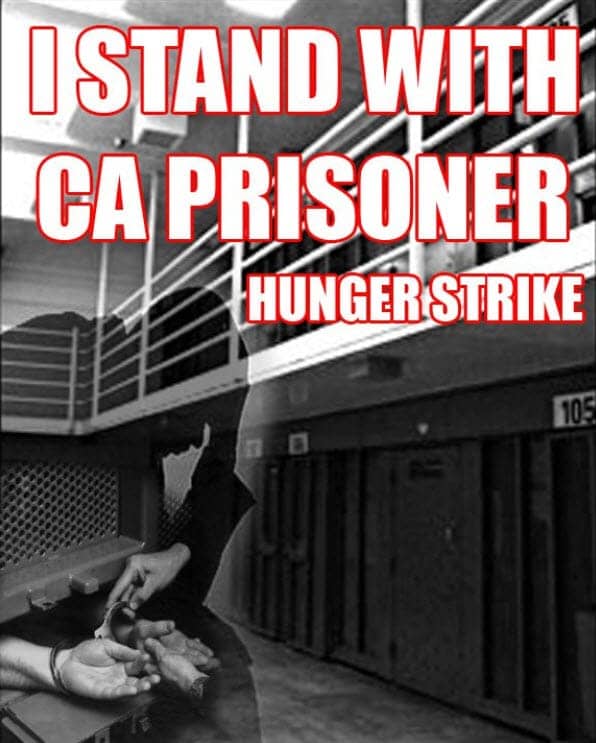Corrections officials accede to pressure, begin negotiating with hunger strikers as their health deteriorates
by Isaac Ontiveros, Prisoner Hunger Strike Solidarity
With the Pelican Bay prison hunger strike entering its third week, mediators reported Thursday that the California Department of Corrections and Rehabilitation (CDCR) has responded to pressure from strikers and outside supporters, beginning initial negotiations with strike leaders in the prison’s Security Housing Unit, along with an outside mediation team.
Advocates working on behalf of the strikers continue to rail against the CDCR’s slow movement over the past two weeks in addressing the prisoners’ demands, expressing grave concerns about the strikers’ rapidly deteriorating health. Hundreds of prisoners at Pelican Bay remain on strike, with thousands more participating in prisons throughout California’s 33 prisons.
Dorsey Nunn, executive director of Legal Services for Prisoners with Children, and a member of the prisoner-selected mediation team, says that leaders are determined to keep up their strike. But he worries about the CDCR’s willingness to move negotiations forward.
“Both parties are dug in,” says Nunn. “The CDCR is not offering anything substantial, and the strikers aren’t receiving anything substantial. So they’ll keep going. And we don’t know how long it’ll be before people start dying.”
Earlier this week, advocates and supporters received word that some of the strikers’ health had deteriorated to near-fatal levels. With the CDCR slow to move on negotiations, and with already poor health conditions at the core of the prisoners’ demands, many fear that time is running out.
Some of the strikers’ health has deteriorated to near-fatal levels. With the CDCR slow to move on negotiations, and with already poor health conditions at the core of the prisoners’ demands, many fear that time is running out.
“The strikers’ claims of substandard and prejudicial medical care at Pelican Bay are certainly true,” says Dr. Corey Weinstein, a correctional medical consultant and human rights investigator with 40 years’ experience providing health care to California prisoners. Weinstein continues, “Given my long history of working with California prisoners I have grave doubts about the Department of Corrections’ ability to adequately carry out their own guidelines and protocols even during this urgent and public moment.”
Meanwhile, organizations and individuals have held demonstrations throughout the U.S., in Canada and in Australia and have flooded CDCR headquarters and Gov. Jerry Brown’s office with demands for negotiation. Strike supporters are urging people to take further action to have the strikers’ demands met.
“Everyone who is against torture needs to support this hunger strike by matching the courage of these prisoners,” says Molly Porzig of Critical Resistance, a member of the Prisoner Hunger Strike Solidarity coalition. “Historically, people have taken up civil disobedience to prevent mass death, and we’re in such a moment now.”
Everyone who is against torture needs to support this hunger strike by matching the courage of these prisoners. Historically, people have taken up civil disobedience to prevent mass death, and we’re in such a moment now.
Negotiations are set to continue Friday. Mediator Dorsey Nunn says the team will continue to urge the CDCR to negotiate in good faith: “The strikers’ demands are so minimal, they want to have hope like anyone else. The CDCR could end the strike by providing even a little bit of hope for these prisoners.”
Isaac Ontiveros of Critical Resistance, a national grassroots organization working to abolish the prison industrial complex, is also a spokesperson for the Prisoner Hunger Strike Solidarity Coalition. He can be reached at isaac@criticalresistance.org.




No comments:
Post a Comment